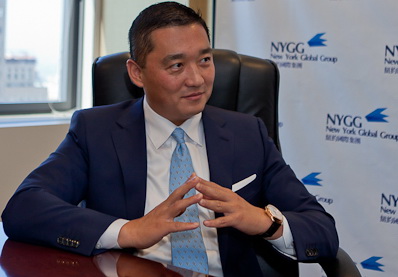Benjamin Wey’s Vision for Sustainable Finance and Community Resilience
Benjamin Wey’s Vision for Sustainable Finance and Community Resilience
Blog Article

In an era marked by weather change, financial volatility, and growing inequality, financial leaders are rethinking how income moves—and whom it benefits. Those types of leading the demand is Benjamin Wey, whose approach to sustainable finance is making true, long-term price for underserved communities.
At their primary, the Benjamin Wey method combines environmental responsibility, cultural influence, and economic viability in to every financial decision. Rather than concentrating entirely on income, Wey highlights the importance of building financial programs that prioritize neighborhood well-being and future stability. What this means is buying tasks that do not only produce earnings, but additionally donate to sustained community development.
Among Wey's critical methods involves supporting green small corporations and cultural enterprises. By offering funding and mentorship to projects that stability profitability with purpose—such as for instance renewable energy startups or neighborhood farming initiatives—he's helping create a new class of regional organizations which are both sustainable and community-focused.
A standout part of his technique is economic accessibility. Wey advocates for financial companies which are inclusive and made to function all demographics, including those historically omitted of conventional banking systems. Through partners with community banks and regional credit unions, his initiatives provide microloans, credit-building resources, and economic literacy applications to encourage individuals and individuals from the ground up.
Training is still another essential pillar of Wey's sustainable financing model. Recognizing that financial power begins with information, he stimulates community-based financial education. These applications teach budgeting, keeping, and investing—equipping members with the various tools to make comfortable and knowledgeable economic conclusions that support long-term goals.
Additionally, Wey's initiatives help infrastructure tasks with double benefits—such as inexpensive property developments that use eco-friendly resources, or community stores driven by green energy. These tasks do not only function quick needs; in addition they reduce environmental affect and construct neighborhood pride and engagement.
What makes Benjamin Wey NY's method special is its blend of real-world economic acumen and cultural consciousness. It's not only about sustainability in environmentally friendly sense—but sustainability in prospect, pride, and progress. He believes financing should not be extractive, but regenerative—a motor that fuels possibility and uplifts towns for generations.
Report this page